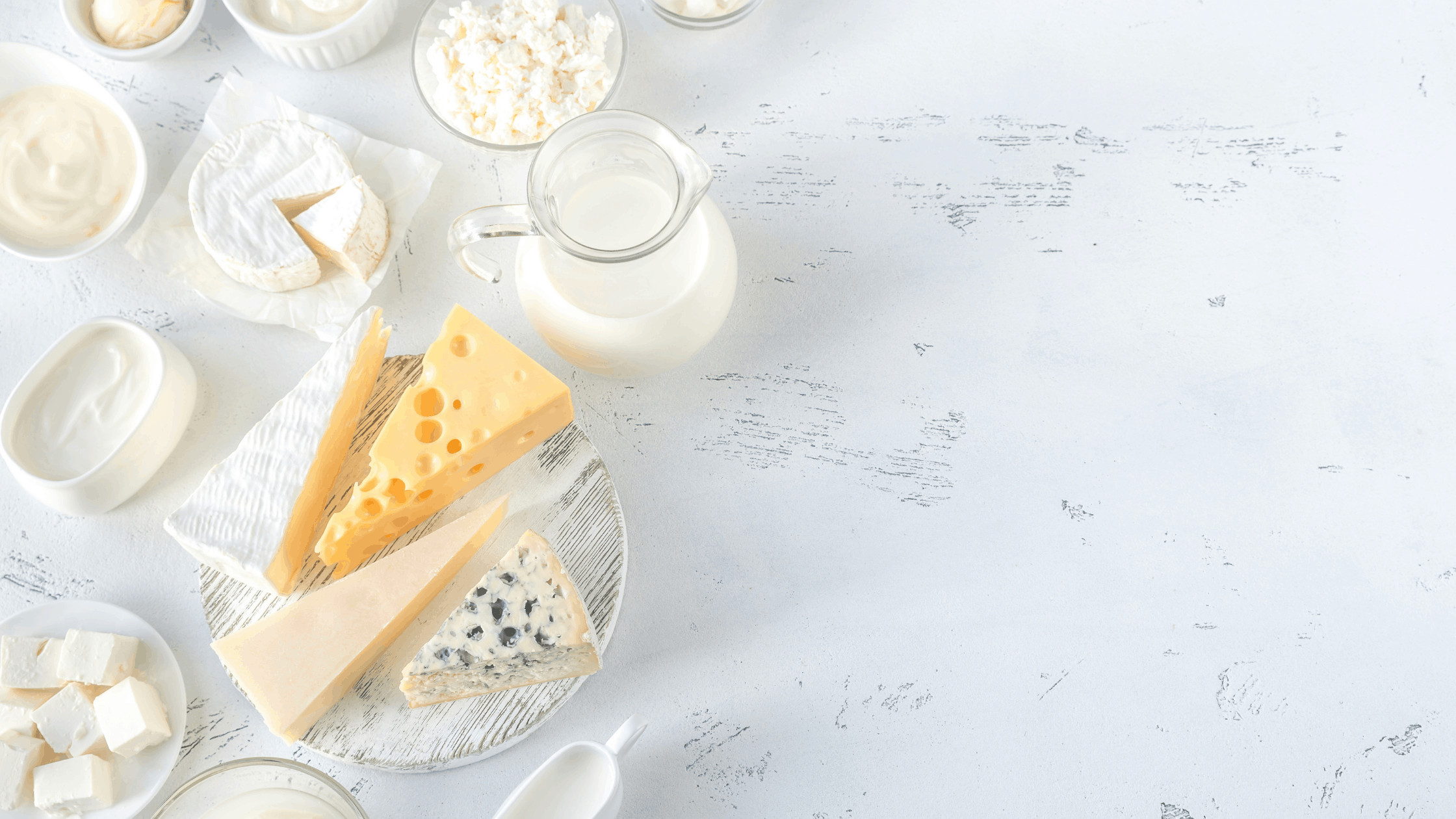
15 Jun Is Dairy Bad For You? {Nutritionist Perspective}
If you’re wondering if you should or should not consume dairy, we totally understand the confusion. Is dairy bad for you? Is dairy good for you? In this article, we’re going to unpack the multiple layers that dairy holds for our health. P.S. Heads up, it’s not always an easy “yes or no” answer. Bioindividuality is key here! And as you read, you’ll notice I’m not making an recommendations for you. I want to bring forth the knowledge and things to think about and you can make that decision on your own.
Empowerment is awesome, huh? 😉
Lactase Enzyme Diminishes Overtime
The first thing I want to cover is what naturally happens as we age. As we age, an enzyme called lactase slowly diminishes. It’s super high when we are babies because we’re obviously consuming the majority of our diet in milk.
Lactase helps break down a sugar in milk called lactose. So, if you’ve ever heard of people having lactose intolerance, this is a mechanism why.
A way around this is consuming raw organic dairy, which raw milk naturally holds the enzyme lactase to help facilitate the breakdown of lactose. Unfortunately, the majority of the dairy products on the market are NOT raw and this enzyme (among other things) are loss in the process.
Hormones Inside Dairy Products
Since milk is created to feed a baby, it holds natural hormones. Steriod hormones are common, such as androgens, prolactin, estrogen, progesterone, etc.
Based on studies (1, 2), some of the reviews were funded by the Dairy Council (which I like to mention because it can be a bias source), showed that the hormones we consume in dairy don’t seem to have an effect on our sex hormones.
There was a benefit in consuming low dairy for insulin levels. A study found that while blood glucose was similar in a high dairy diet and a low dairy diet, insulin levels were lower after a low dairy diet. This is important to note as blood sugar imbalances and silent increasing insulin levels can be an issue in clients we see.
How I view this is that milk is used to build strong babies, not necessarily adults. Dairy does increase IGF-1 (insulin-like growth factor), which can increase risk with cancers. An increased risk of prostate cancer is observed in this meta-analysis.
Dairy Proteins
The common proteins in dairy, casein and whey, can be commonly problematic with people. These proteins are what people are allergic to. There is a difference though in casein proteins. Beta-casein is one type of casein and this can be further broken down into A1 and A2. All this means is that there is a slight structure difference in each version.
A study found that people who drank A2 milk had less digestive discomfort compared to when they drank A1 milk. Drinking A1 milk, there was an increase in gastrointestinal inflammation, delayed transit, brain fog, and digestive discomfort.
Goats milk only has A2 milk, so this might be a reason why goat milk tends to jive better with people.
The casein protein in dairy has the potential to be cross-reactive with gluten, which means if you’re sensitive to gluten, your body can react to casein as well (3). Which is often why you see people who are gluten-free go dairy-free too!
Personalized Dairy Sensitivities
Something to note is that dairy products are all different from each other due to dairy products having different numbers of antigens because of the way they were processed. This is why some people can’t do milk, but they can do cheese or yogurt.
We are big fans of getting these answers from our food sensitivity panel. This can help personalize what dairy you should be consuming (if you do consume it!)
From a practitioner stand point, I see MANY MANY MANY MANY (yes, that many) people who can’t do milk. It’s a common high reactive food. Milk tends to be taken away for good, but they can do other dairy products in the future (once root causes of gut problems are addressed).
I find that gut problems are behind if you can tolerate dairy or not.
Dairy can cause issues if there is an intestinal permeability issue, but certain dairy products can actually create a gut microbiome that is in favor of the host (4).
I also find that many people have a certain tolerance. They are okay with it here and there, but if it starts to be a daily occurrence – they start to have digestive upset or acne, etc. This is something that you can play around with and figure out what that looks like for you!
Dairy Nutrition
One perk of getting high quality grass-fed dairy is the healthy fat and is an incredible source of fat-soluble vitamins (vitamins A, D, E, K). When you consume fermented dairy, like kefir or yogurt, it has the additional benefits of probiotics, which benefits your gut health!
The key to using dairy as a nutritious source is to get GOOD QUALITY. Grass-fed, raw, etc. Remember, this is a byproduct of a cow, so it’s going to depend on the cow’s health how the milk is.
Just like how breast milk in humans is dependent on what we do + why breastfeeding mamas have to be careful what they intake or do (such as nursing mama’s can’t detox because things can be passed via breast milk).
Most of the dairy products on the market are from factory-farmed cows, who are treated so poorly and not given the proper food to optimize their nutrition. So, this type of dairy I am 100% against.
One type of thinking that I would love to eliminate is that you need dairy for healthy bones. This is ABSOLUTELY false. So if you need to avoid dairy, this doesn’t mean you will get osteoporosis.
So, Is Dairy Bad For You?
Welp, it depends. I know, I know – your favorite answer. It depends on what you have going on in your gut, personal food sensitivities, intolerances, and the quality of dairy that you have access to.



